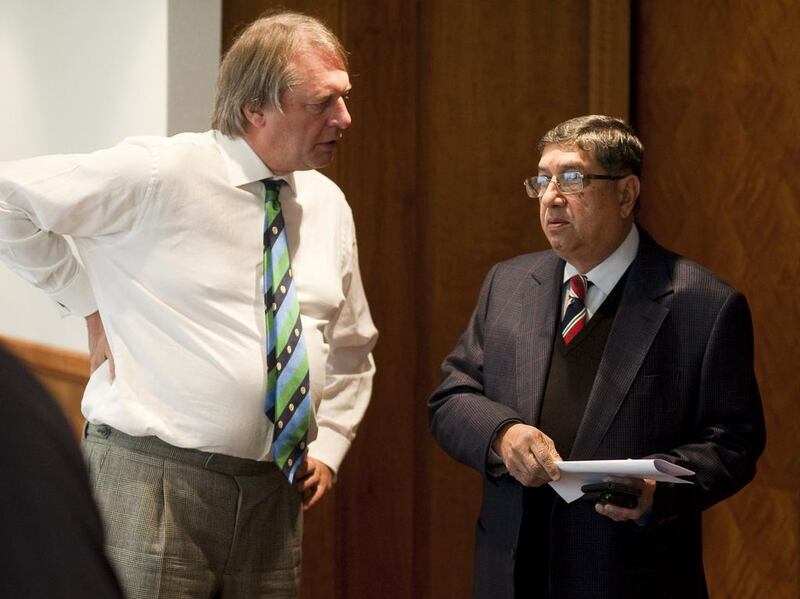The ICC has agreed unanimously to a set of principles that will shape the future structure, governance and financial models of cricket’s governing body. These principles have been derived from a more detailed and comprehensive set of five resolutions drawn up by Cricket Australia (CA), the Board of Control for Cricket in India (BCCI) and the England & Wales Cricket Board (ECB).
It is these resolutions, not entirely finalised yet, that as many as eight full member boards will have to sign on for them to be implemented. The National has seen one version of the resolutions but outlined below are the broader principles and the changes they are set to bring to the game.
This may or may not include the implementation of a promotion and relegation system in Test cricket where no team will now be exempt from relegation (in earlier proposals, India, Australia and England could not be relegated). More crucially, this may allow teams such as Ireland and Afghanistan to break through to Test status.
This will be an amount paid equally on an annual basis to all full members (except India, Australia and England) to “encourage and support Test match cricket.” Essentially, as the ICC chief executive David Richardson pointed out this fund is designed to enable countries that are playing loss-making Test series to continue playing Tests. “With the Test fund it will go a long way in making sure that Test cricket does not get jettisoned in favour of ODI series.”
One of the more contentious principles. The changes essentially call for the FTP to be taken out of the ICC’s hands entirely and become a series of negotiations reached between each member country. Though essentially that is what happens now (the ICC simply provide administrative oversight and try to enforce a minimum standard of matches to be played by every country) this, critics argue, will lead to an flood of matches between the big three and limited opportunities elsewhere.
New leadership structure
Another contentious point. The changes call for the creation of an Executive Committee (ExCo) - which will become the main decision-making body - comprised of permanent seats for the big three. Initially plans had been to accommodate one other member, on a rotational basis but that has now been expanded to include two members outside the big three. Representatives of the big three will also occupy head seats for two years from June 2014 on the ICC board, the ExCo and the important Financial & Commercial Affairs committee.
A new financial model
Currently, 75% of the revenue that the ICC makes from the sale of its commercial rights is divided equally between the ten full members. Though specific details of a new redistribution system are not currently known, any new model is designed to ensure that the big three boards receive a far greater share of profits than other boards. Partly this is justified, as they also contribute more to the revenues the game generates than any other board. But the calculations for how much more they receive - and why - are not yet transparent; they are also potentially likely to increase the disparity between the richer boards and the rest.
World Test Championship (WTC) out, Champions Trophy back in
Launched in Abu Dhabi barely three months ago, the WTC is off the agenda, deemed unworkable by the ICC board. The Champions Trophy, however, is back, less than a year after what was supposed to be its last edition, was held in England.
osamiuddin@thenational.ae
Follow us on Twitter @SprtNationalUAE





